Cosmology
-
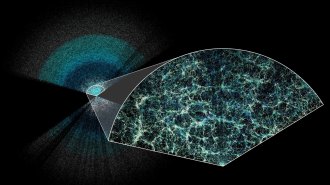 Cosmology
CosmologyThe largest 3-D map of the universe reveals hints of dark energy’s secrets
A year of data from DESI, the Dark Energy Spectroscopic Instrument, suggests that, contrary to expectations, dark energy might vary over time.
-
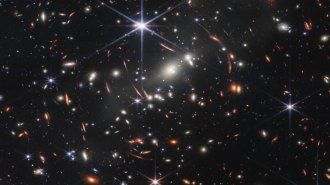 Space
SpaceDid the James Webb telescope ‘break the universe’? Maybe not
There’s no need for strange new physics to explain anomalously bright, massive galaxies seen by JWST, Hubble data suggest.
By Adam Mann -
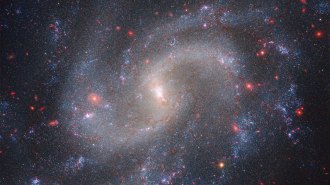 Cosmology
CosmologyNew JWST images suggest our understanding of the cosmos is flawed
JWST data don’t resolve a disagreement over how fast the universe is expanding, suggesting we might need strange new physics to fix the tension.
-
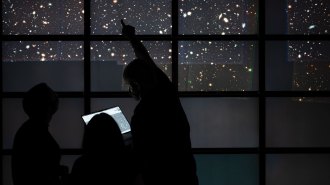 Astronomy
AstronomyJWST’s hunt for distant galaxies keeps turning up surprises
In its first year, the James Webb Space Telescope has found many galaxies from the early universe that are bigger, brighter and more mature than expected.
-
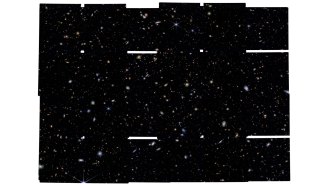 Space
SpaceThe James Webb telescope may have spotted stars powered by dark matter
Three objects in the distant universe bear signs of hypothesized “dark stars,” researchers claim, though others say more definitive data are needed.
By Skyler Ware -
 Physics
PhysicsCenturies on, Newton’s gravitational constant still can’t be pinned down
A new experiment could finally answer the question 'What is the strength of gravity?' But it's a hard test to do.
-
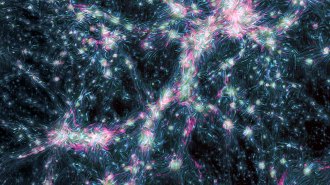 Cosmology
CosmologyAstronomers spotted shock waves shaking the web of the universe for the first time
Studying these elusive shock waves could give scientists a better look at the mysterious magnetic fields that permeate the cosmic web.
By Elise Cutts -
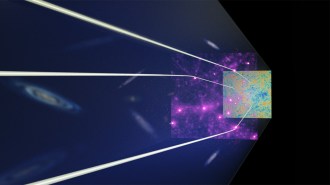 Cosmology
CosmologyScientists mapped dark matter around galaxies in the early universe
A technique used to reveal dark matter could also shed light on a disagreement about the clumpiness of matter in the cosmos.
-
 Cosmology
CosmologyThe Windchime experiment could use gravity to hunt for dark matter ‘wind’
Though decades away, the project hopes to use an array of ultrasensitive sensors as a “wind chime,” jostled by dark matter blowing past Earth.
-
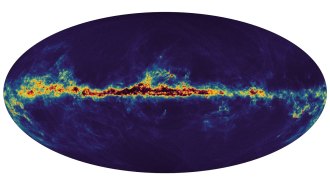 Astronomy
AstronomyNew Gaia data paint the most detailed picture yet of the Milky Way
Gaia’s new data can tell us about galaxies the Milky Way has swallowed, the young solar system and asteroids that could hit Earth.
By Asa Stahl -
 Cosmology
CosmologyA century ago, Alexander Friedmann envisioned the universe’s expansion
Alexander Friedmann saw that Einstein’s equations predicted multiple cosmic scenarios, including a Big Bang.
-
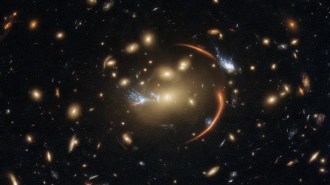 Astronomy
AstronomyA supernova’s delayed reappearance could pin down how fast the universe expands
“SN Requiem” should reappear in the 2030s and help determine the universe’s expansion rate.
By Ken Croswell